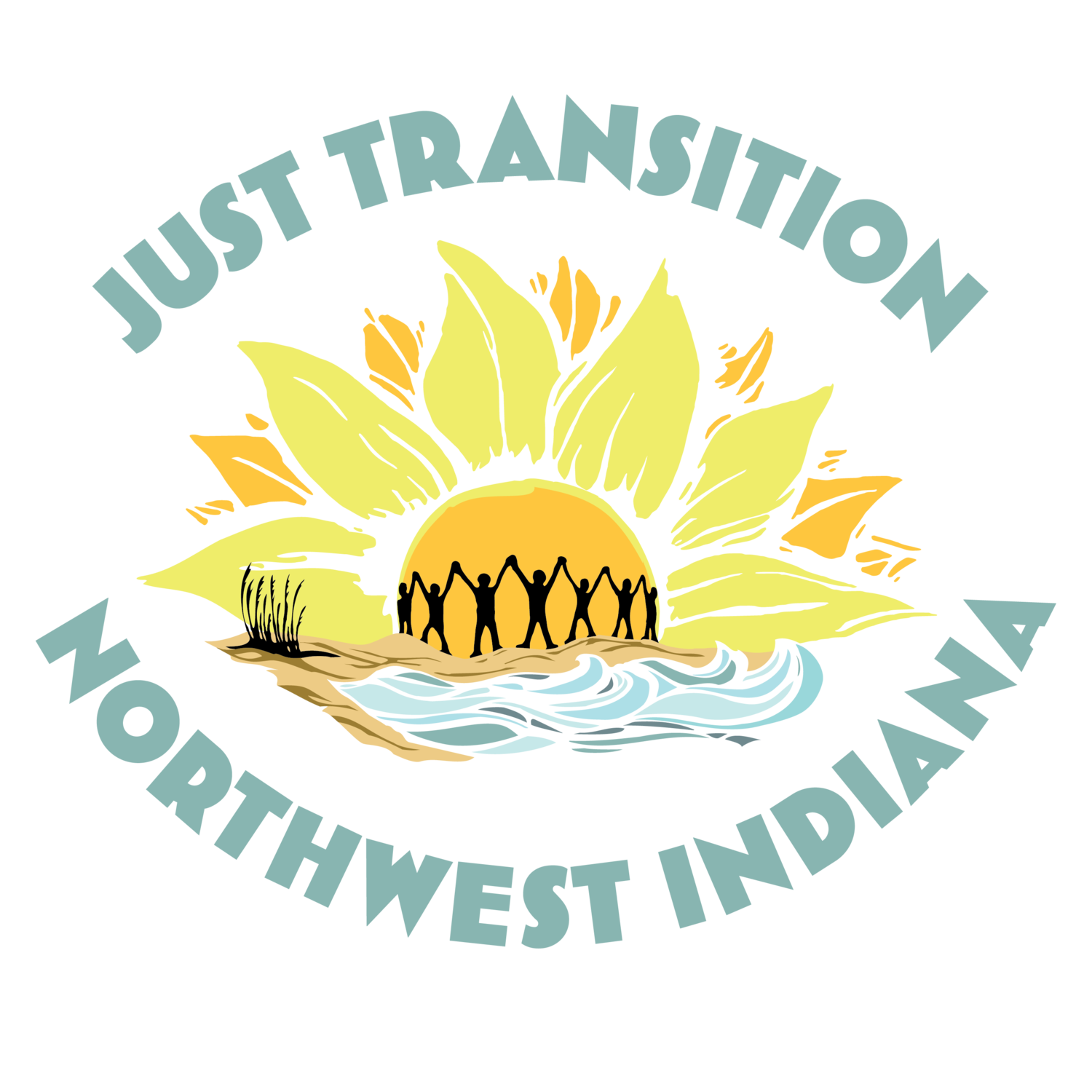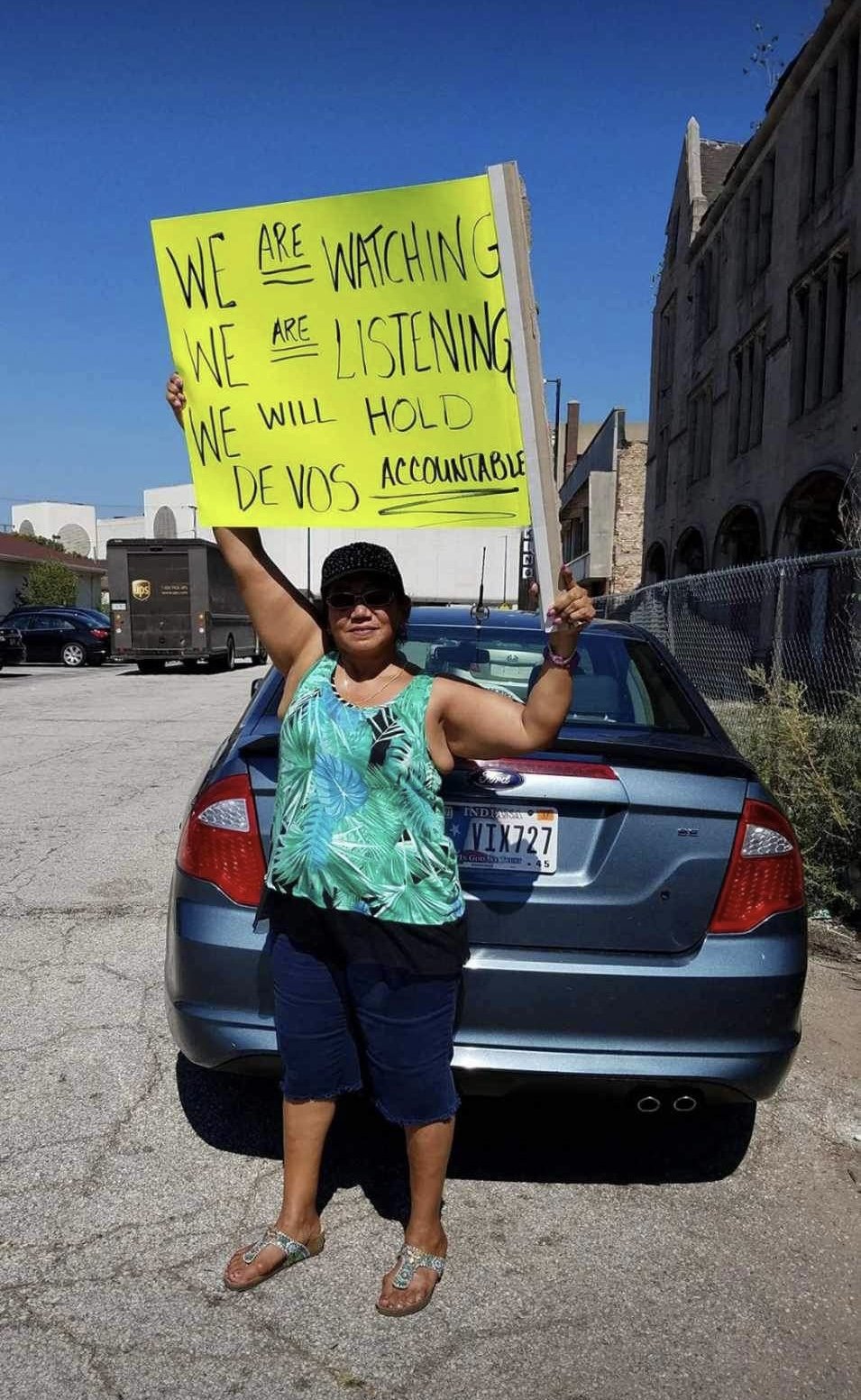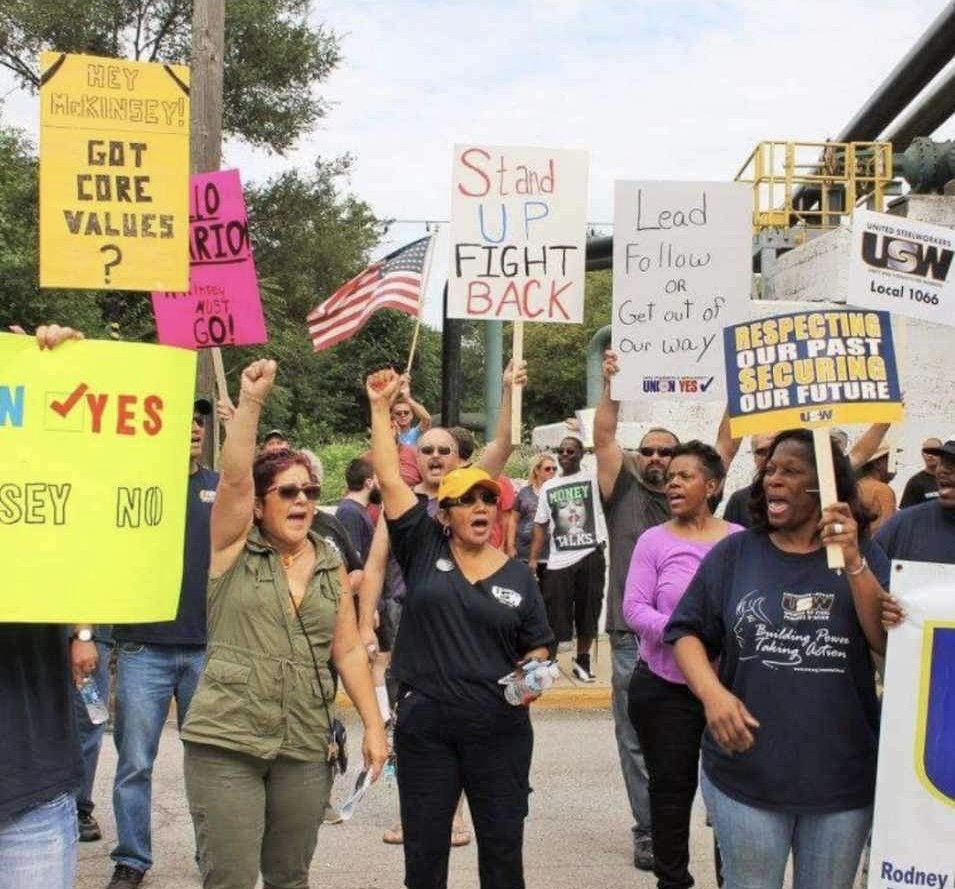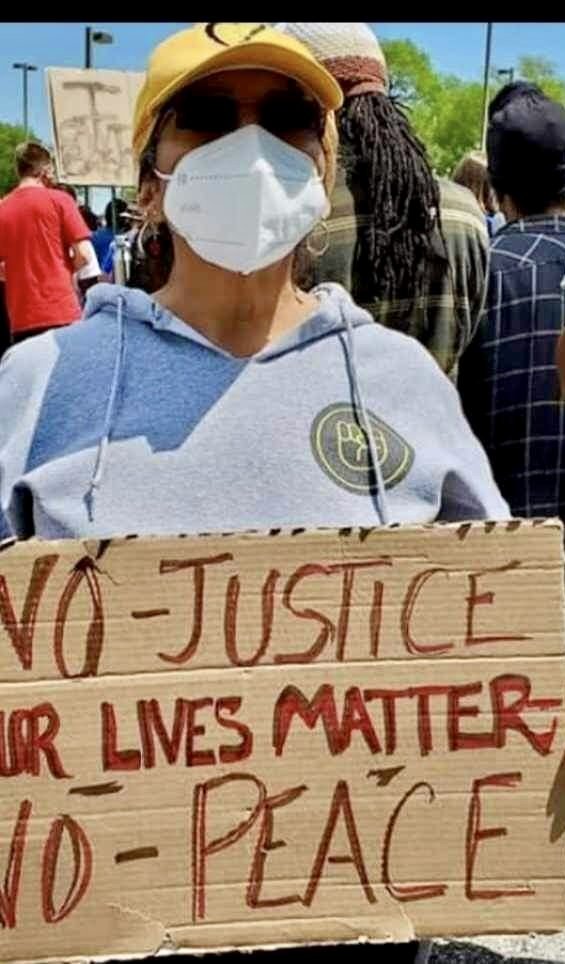Voices of Steel: An Interview with Elizabeth Palacio
To celebrate Labor Month, we interviewed steel workers from across the region to highlight their experiences and uplift their voices.
To kick off the series, we invite you to read this powerful interview with Elizabeth Palacio, a retired steelworker, proud member of Women of Steel, and dedicated community activist. In this blog, Elizabeth shares her day-to-day experiences and lessons working at the mill, the importance of labor unions, and the challenges women face in the male-dominated steel industry.
Daniela
Tell me about yourself! Where are you from, and what led you to work in the steel industry?
Liz
When I was a young girl, we lived in Gary, Indiana. It was a beautiful home and, you know, we didn't have much.
My mom went through a lot. She was married to my father, and he was an abuser, and it was years and years of watching the abuse. I remember him chasing her around the dining room table for her $34 check. He was an electrician working at US Steel. She never wanted to give up her money, and she would tell me growing up: Don't ever depend on a man for nothing.
My mom decided to leave Indiana and moved us to Minnesota during the summer of the end of ninth grade. It was just me, my two brothers, and the dog. We didn't know where we were going, but I didn't know until later on, years later, that it took a lot for her to do that. She had a referral from Illinois 3M to get a job at the 3M company in Minnesota. She got hired a week later. At first, we were staying in a motel with two beds. We never heard from my father again. He never paid a penny of support. Through those years, my mama continued to tell me not to ever depend on any men, which I never did.
I was tired of pinching pennies because I was a waitress from the age of 14, so I left Minnesota after I graduated. I told my mom I was gonna go to Indiana to get a job in the steel mills like my uncles. She didn't want me to go, but I promised to send money and help. I told her I just needed to try to live by myself, and I did.
I moved with my tia [Aunt] right there by the [Indiana] harbor. It was walking distance from where the hiring place was, and, girl, let me tell you, the steel industry is a male-dominated world. You know, very few women got in. But my brother, my big brother, God bless him, we lost him four years ago, he told me, "Lizzy, never be afraid of anything. Always give your best, and don't be afraid of anything."
It took me a year to get hired [at the mill]. I would go to the hiring place and fill out an application three to five times a week. Then, I got a call and was hired on April 27, 1978. I was happy!
Throughout the years, I worked as a steelworker. I'm very proud of my time there because I did a lot of things: from being in the underbelly of a carriage of a train to cleaning out these little graphite particles that look like scales or glitter but are very carcinogenic and even being in the top of the stacks putting more heavy supplies for the welders. I've been from the top to the bottom. My brother told me not to be scared, so I kept trying and learning new things.
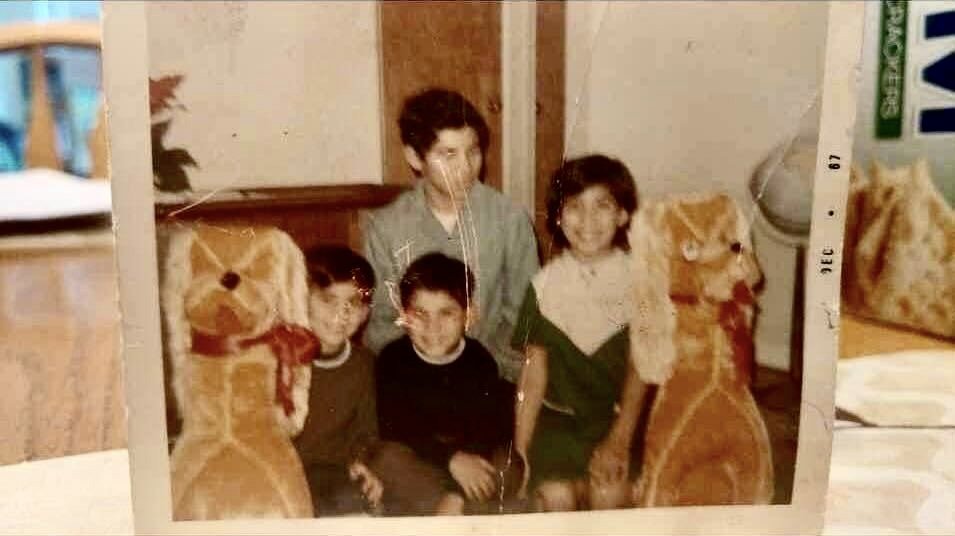
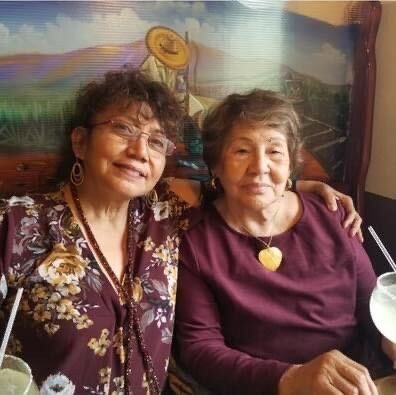
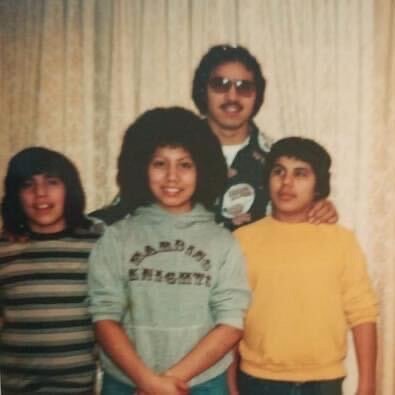
Daniela
Wow, that's incredible! How was your day-to-day working in the steel industry?
Liz
Well, I'm gonna tell you I'm so proud of being the first female furnace operator at 2BOF for ArcelorMittal [now operated by Cleveland Cliffs] Steel USA-Indiana Harbor East Chicago, Indiana.
I would drive a big Caterpillar tractor; the wheels were nearly 12 feet tall! I had to check the oil and gas to make sure it was working during the winters and summers. I would use a Bobcat excavator to move material around, but sometimes, I would have to do it by hand and lift 30-50-pound bags and tip over 300-pound barrels of material. I would also have to take a test to measure how hot the mixture of steel was and even pour the steel into the ladle under the furnace. This would later be turned into steel slabs. Each job would take me around eight weeks to learn.
Oh gosh, I went out on medical leave because my knees were bad with getting up and down machinery, hitting my knees from riding the tractor, and playing baseball and softball. All those years in volleyball, I love volleyball! But yes, that's why they were so bad. I got both knees replaced. I told myself: Don't be scared of anything, and after that, I had to keep moving, which is very important so scar tissue doesn't build up.
Daniela
How long were you a steelworker?
Liz
I worked for 34 years as a steelworker! Very proud of it. I was laid off for five years. During that time, I got a job as a waitress because I needed the income. I had three small children and bills to pay.
Daniela
Was that after 34 years working in the steel industry?
Liz
No, it was in between. Whenever they laid me off, I would go back to waitressing for some time. I would then get called back to work in the steel mills, and I'd be alright.
Daniela
Why did those layoffs happen?
Liz
There were no orders back in the '80s and the '90s. There wasn't much demand for steel so the industry would lay off the younger ones. I was one of the younger ones.
Daniela
What is your opinion on the current trajectory of the steel industry?
Liz
Right now, since I've been an activist, I see all the pollutants that have gone into several areas of where the steel mills are, the waterways, and the carcinogens they put out.
I wasn't awake. I was focused on my kid's life and my life, not paying attention. In a way, I was only aware of labor laws or labor union laws because my union would send me to labor school.
Every summer, they have a "Steel University'' (I think that's what it's called), where you can go to Decatur, Illinois. The union would rent us dorm rooms and teach us about labor union studies for seven days. I never got to stay seven days; I only got to stay around 5, but they sent me there around three times throughout my career.
After I got laid off a second time, I started getting more involved with my union cause I didn't like being laid off. My union was called Women of Steel (WOS)! En México tienen las mujeres de acero, la Matamoros.
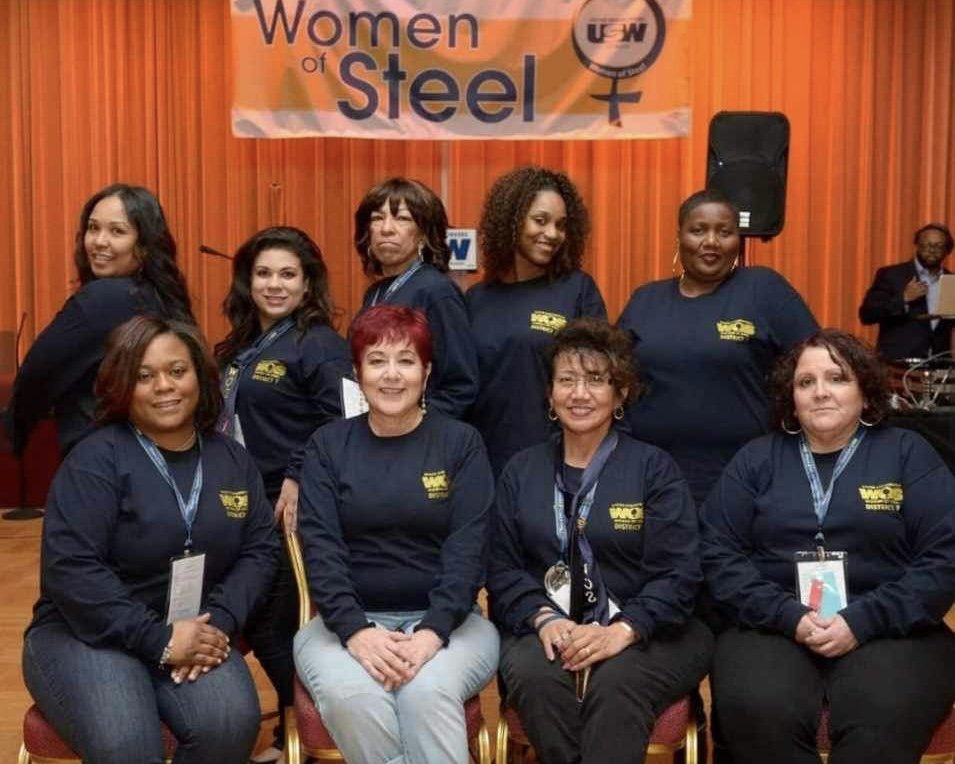
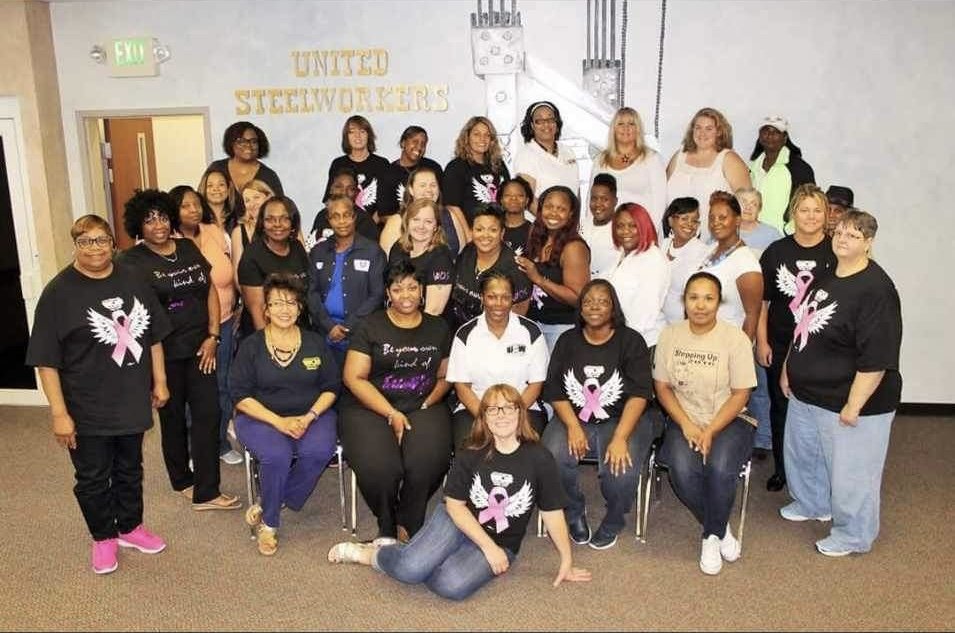
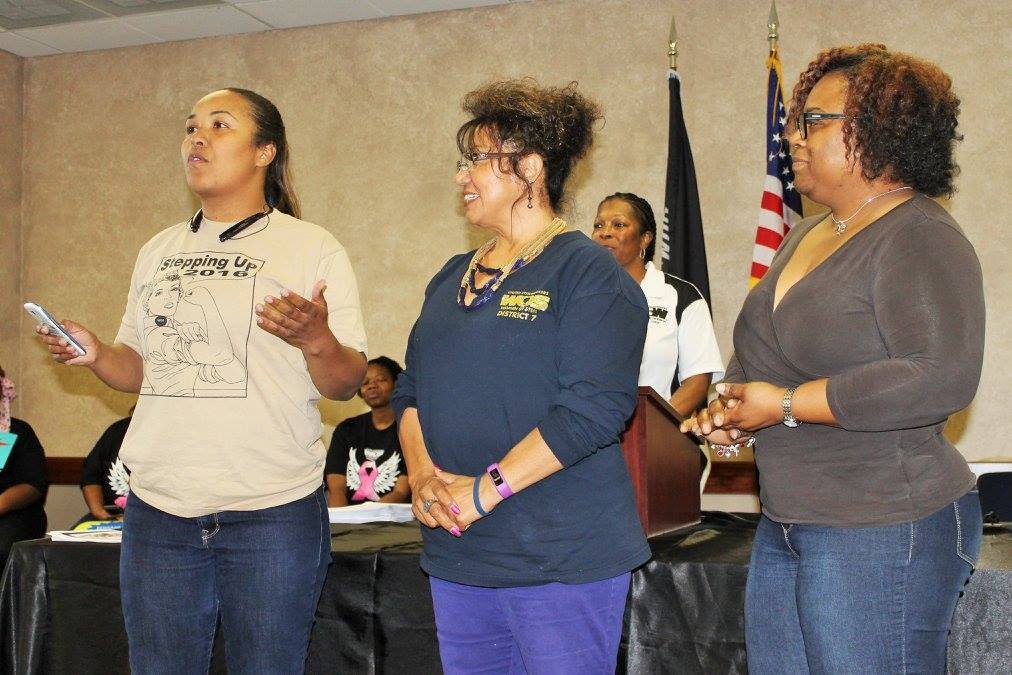
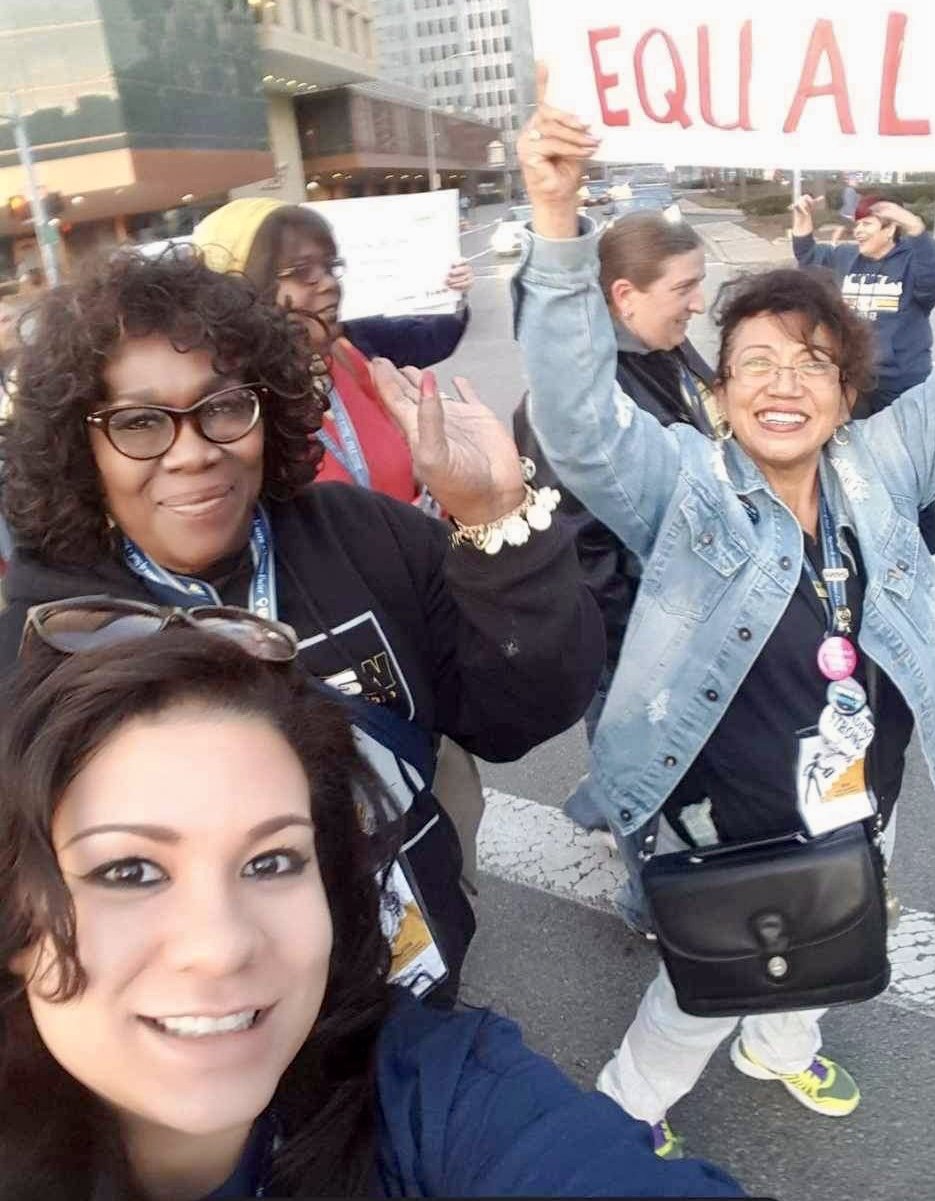
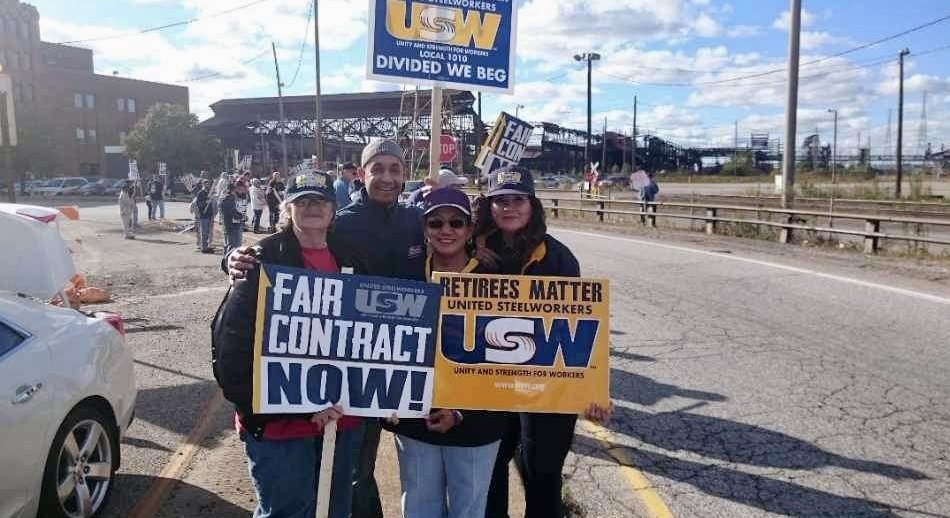
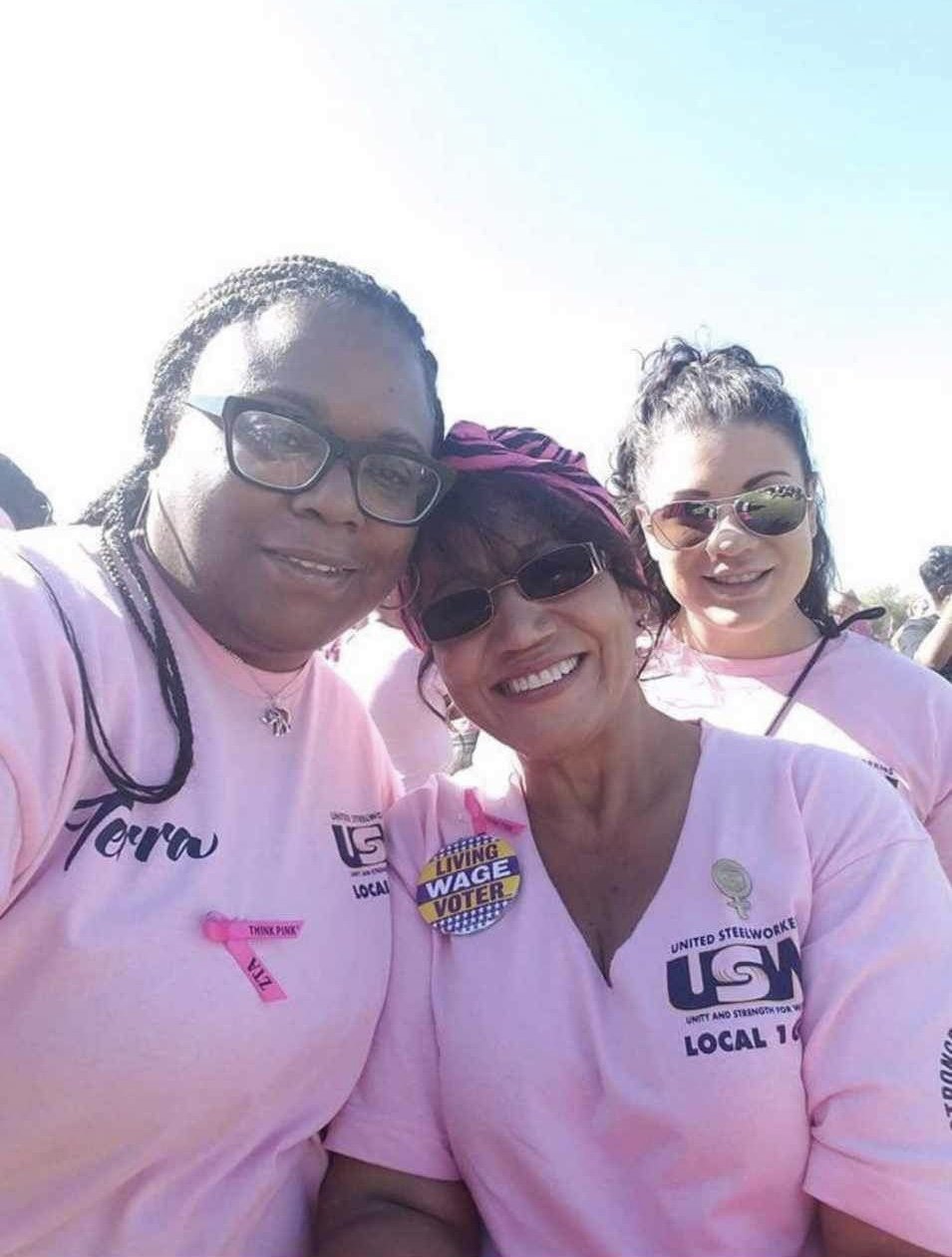
Daniela
Tell me about Women of Steel!
Liz
I started working with them because when I was in the furnace, the highest-paying job I had, I noticed if you were not aware, they would try to underpay you and pay you for something else instead of the furnace.
I remember they brought in a man from another part of the mill. He was an operator, and at the time, I had been in the furnace for ten years and had experience in all the other jobs that prepared me for the furnace, but he was an operator and just jumped into the furnace. My buddy said to me, Listen, I want you to go down to the union and ask about this guy's position and hire date. That's how I found out he had been unfairly moved to the furnace. His wife worked in a scheduling department, and they got in trouble. The following week, he was back at this job as an operator on the other side of the mill.
Daniela
That's so interesting! Can you tell me more about "Steel University"?
Liz
Yes, "Steel University" or "Union Labor School," they called it. They would teach us about everything related to labor rights. I learned that compared to Canada and Mexico, we in the U.S. don't have such dire working conditions. One of the workers, part of the Matamoros [Women of Steel members] in Mexico, would have to crawl under red-hot billets to get to the other side and work on that side. They weren't given gas monitors that so many people needed because sometimes the gasses don't have a scent, and if you were close to the gas, you could die. So, in that case, the meter would go off to alert you. Here in the U.S., after you are exposed to extreme heat, you are required to be out for 20 minutes, but I learned that is a privilege not everyone has.
We learned about the cocoa workers in Africa and the ladies and children who would carry the rubber from the rubber trees a mile and a half away. Whatever they ended up within their bucket, that's what they got paid for.
So many injustices around the world. That's what they would teach us and prepare us to fight against. That's what unions are good for having the backs of their employees and fighting for them. [Speaking of] We [Liz and her husband] heard on the way to the airport yesterday that the United Auto Workers are gonna go on strike!
Daniela
Can you share what environmental protections you think the steel industry should have in place to protect communities and workers?
Liz
I would like to see them use scrubbers in their stacks. The scrubbers will help filter that horrible air and avoid getting into the atmosphere. In the steel industry, a scrubber is something that filters, so I believe they should have scrubbers on each of the stacks of emissions. That would filter most of the carcinogens that are going into the air right now, which just go into the air at this time and land in the water that we drink.
I also would like the industry to reuse. Yeah, whatever they could reuse, they need to reduce waste!
Daniela
You mentioned you were not as "awake" as you are now regarding the environmental pollution of steel mills, but you were aware of some of the material being carcinogenic. Did you ever fear getting hurt or sick while working in the industry?
Liz
Actually, yes, but when you're a parent of children and see their little caritas, lo haces de amor. [English: their little faces, you do it with love]. You want to have as much as you can for your children. Let me tell you, Daniela, there were three times that I almost died. Two times that I can remember, and it makes me cry to this day because of how close I [we] came.”
Let me tell you the story quickly: I was with my buddy. Our boss was in a hurry, and we were working at midnight with him. We all had our safety locks, and I remember saying to him, "Hey, we'll put the safety locks on," and he said, "No worries, I already did so." I was confused because I didn't see him do so, but something told me to trust him because he was my boss.
My buddy, Andy, and I took our shovels to dump some material into the chute, but suddenly, I heard my other buddy, Terry, cursing and screaming. A few minutes later, more cursing and more screaming. Terry took his hat off and threw it to the floor. I knew how a helmet sounded, so I stopped working to see if everyone was okay, and I heard Terry screaming, "Liz! Andy! Get the hell out of here! But don't touch any of the pipes! GET OUT OF THERE! JUST BE CAREFUL!"
We're on this site - it is only about three feet high, and the chute is above us! Andy and I made it out of there safely, thank God! Right after, Terry told us, "You know, he didn't lock out anything. He's in a hurry to get the heat. I'm so pissed off. Those things could have come up in a heartbeat; you guys would have ended up on the bottom of the pit."
Girl, you don't know what that made me feel like. That could have cost our lives! I didn't talk to my boss for a long, long time.
Daniela
How did he respond?
Liz
He just kept apologizing. I'm sorry, I'm sorry, but there's nothing he could have told my family that would have helped them if I and Andy ended up dead.
Another time, I almost died: I was in the second furnace manual putting the material. We had to wear silver coats, the spats up to our knees, a shield, blue gloves, and eye protection. At the time, I looked really funny. I had all these silver things on because the sparks could burn me at any time.
My boss, his name was Roger, he came out smoking cigarettes. He had his glasses down on his shield. His jacket was open, and he didn't have gloves. I noticed the material was reacting. It was bubbling! Roger was there with a cigarette, just standing there. The stuff splashed at the bottom of his boots. I ran over, and my boots touched the foamy red, bubbling metal. I pulled him over to the side, took off his boots because they were on fire, and scuffed the flame out with the dust around me.
I remember the office made an investigation, and my boss came up to me and asked me, "Hey, Liz, can you tell them that I had on my protective gear?" I know one lie leads to another, and there were even cameras. I told him, "You know, Roger, I can't even do that for my kid. And I wouldn't do it for myself. I would fess up to it. I can't do it for you."
A week later, well, he didn't even get to finish out the week, and he ended up on the other side of the mill. I don't know if it was a demotion or what, but I don't feel bad. If I had lied, everybody probably would have lost respect for me. There were so many men that, in our day, they would leave, but I never did that! I said to myself every day, "I can do it. I can do it.” And I continued to do it, even on the hardest days.
Daniela
Thank you so much for sharing! What advice do you have for current steelworkers?
Liz
There are several jobs that women can get into now. My advice for a female steelworker is to continue the work you are doing. If you find that you don't like it, there are bids for other jobs to open. And you can do that through your mill. I like being on the floor, which is out there in the mill. I was never in the office at all. My mother taught me to work and work; she had the best work ethic. She was always working, kept the house clean, and had dinner for us.
My advice is just to keep at it and, if you finally don't like it, or it's not for you, then, you know, just go on to something else. Also, always ensure you have the equipment you need for your job, like your gas monitor and protective equipment, because that could save your life.
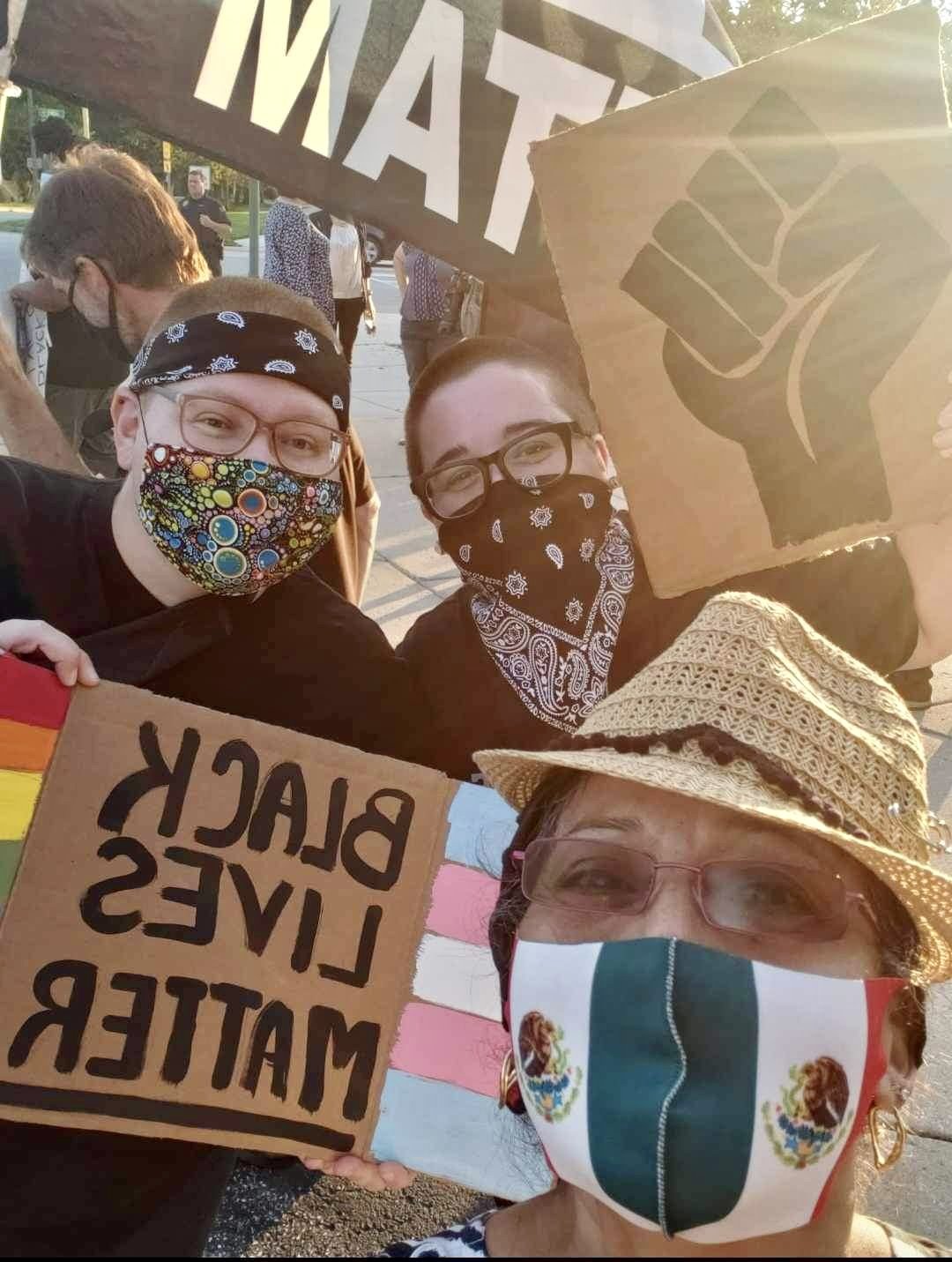
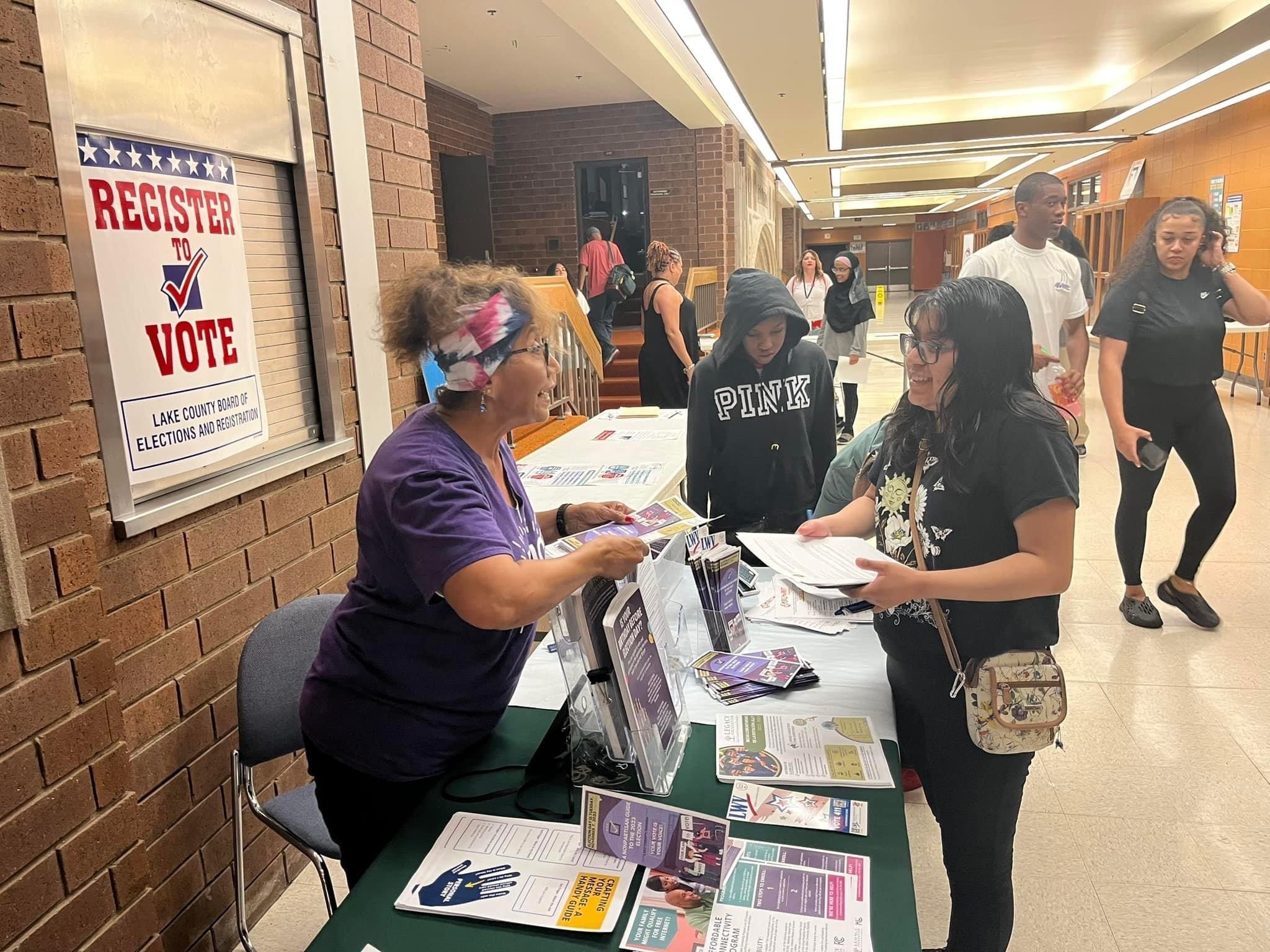
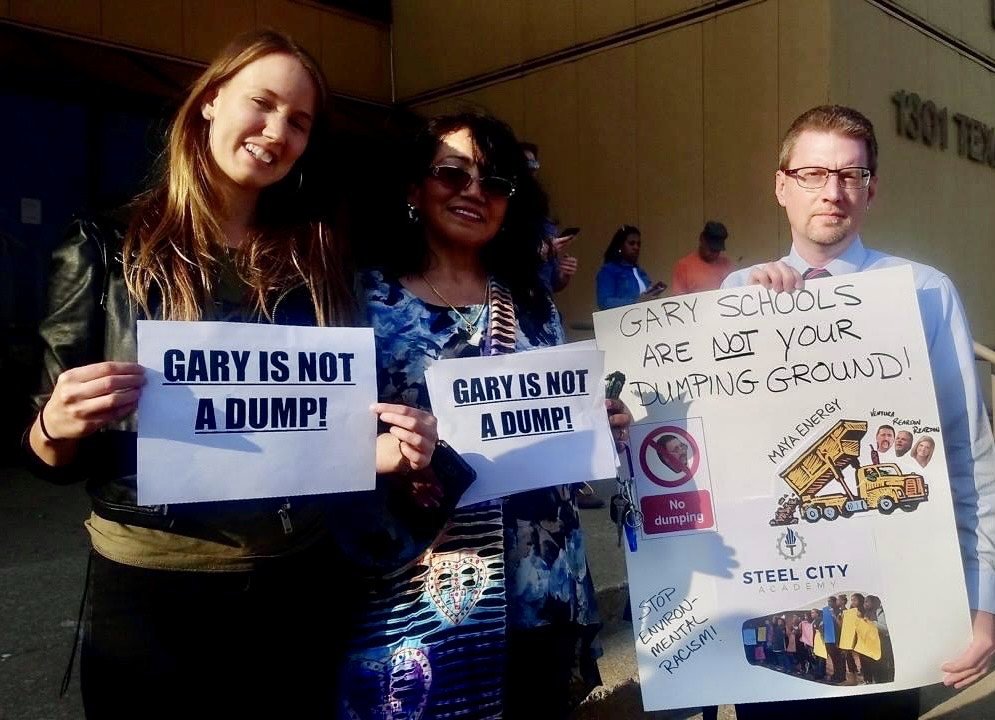
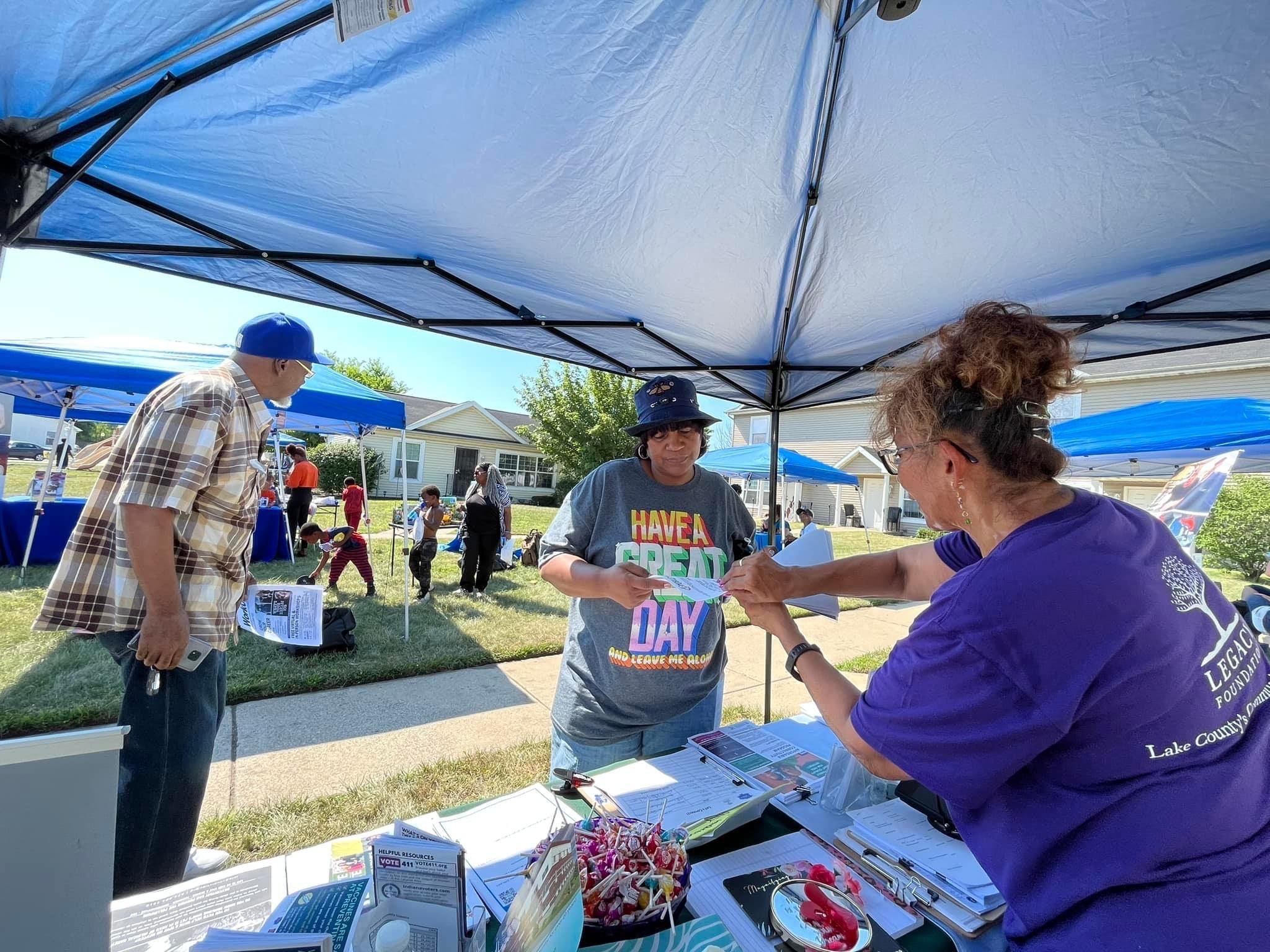
Daniela
What are you most passionate about?
Liz
Oh, wow! Right now, I'm just trying to stay healthy. I teach wreath-making classes, and I make jewelry! I also like to spend time with my grandchildren.
I love to keep active in my community and see that people are registered to vote. In our community in East Chicago, Indiana, only 11.5 out of 100 are registered to vote. I'm passionate about the environment. I try to keep myself informed and fight injustices in my community.
Daniela
You truly do a bit of everything!
Here at JTNWI, a Just Transition means educating and organizing Northwest Indiana communities and workers to move towards a just transition to a regenerative economy that protects the environment, climate, and future generations. A just transition leaves no community or worker behind.
Can you tell us what a just transition means to you?
Liz
A Just Transition for me right now in my city is trying to make sure that the environment and water are clean. They're dredging the canal across the high school so ships can go through it again.
However, all the sediment is affecting the kids and the whole community. All of it is carcinogenic. The air is being polluted. We also have a couple of steel mills in the city, so I just want to make my community and city clean!
Daniela
Could you share any reflections on your experiences as a retired female steelworker and the importance of women still in a male-dominated sector?
Liz
Well, you can make good money. And I would say to the women, always pay yourself first, then pay the bills. You can splurge on your kids. If you don't have kids, you can always splurge on yourself and your family.
The steel industry is male-dominated, but if women speak up, we can get there too. It needs us!
Daniela
The last question is, do you have any message you want to convey to people reading this blog?
Liz
Always be true to yourself and be honest! Also, always be safe. Always be aware of your surroundings.
Daniela
Thank you so much for your time and advocacy, Liz!
